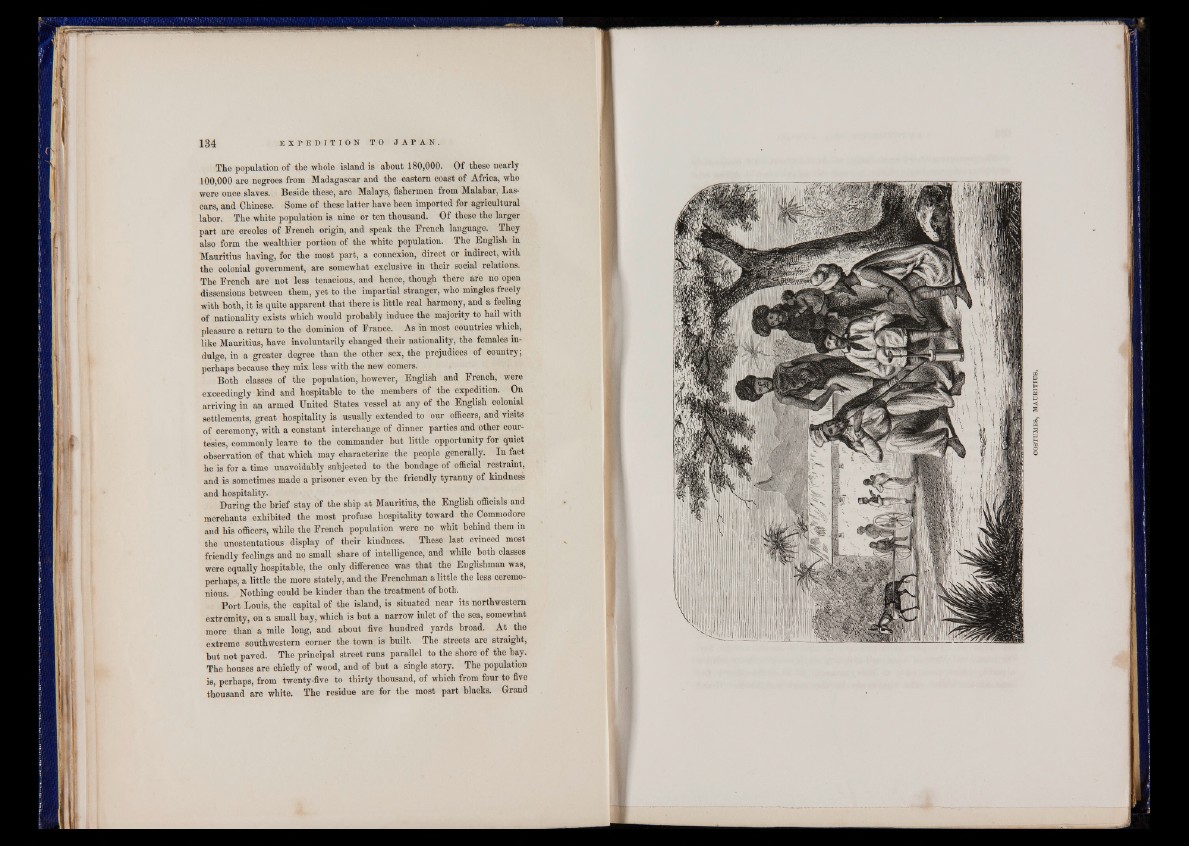
The population of the whole island is about 180,000. Of these nearly
100,000 are negroes from Madagascar and the eastern coast of Afrioa, who
were onoe slaves. Beside these, are Malays, fishermen from Malabar, Las-
oars, and Chinese. Some of these latter have been imported for agricultural
labor. The white population is nine or ten thousand. Of these the larger
part are creoles of French origin, and speak the French language. They
also form the wealthier portion of the white population. The English in
Mauritius having, for the most part, a connexion, direct or indirect, with
the colonial government, are somewhat exclusive in their social relations.
The French are not less tenacious, and hence, though there áre no open
dissensions between them, yet to the impartial stranger, who mingles freely
with both, it is quite apparent that there is little real harmony, and a feeling
of nationality exists which would probably induce the majority to hail with
pleasure a return to the dominion of France. As in most countries which,
like Mauritius, have involuntarily changed their nationality, the females indulge,
in a greater degree than the other sex, the prejudices of country;
perhaps because they mix less with the new comers.
Both classes of the population, however, English and French, were
exceedingly kind and hospitable to the members of the expedition. On
arriving in an armed United States vessel at any of the English colonial
settlements, great hospitality is usually extended to our officers, and visits
of oeremony, with a constant interchange of dinner parties and other courtesies,
commonly leave to the commander but little opportunity for quiet
observation of that which may characterize the people generally. In fact
he is for a time unavoidably subjected to the bondage of official restraint,
and is sometimes made a prisoner even by the friendly tyranny of kindness
and hospitality.
During the brief stay of the ship at Mauritius, the English officials and
merchants exhibited the most profuse hospitality toward the Commodore
and his officers, while the French population were no whit behind them m
the unostentations display of their kindness. These last evinced most
friendly feelings and no small share of intelligence, and while both classes
were equally hospitable, the only difference was that the Englishman was,
perhaps, a little the more stately, and the Frenchman a little the less ceremonious.
Nothing could be kinder than the treatment of both.
Port Louis, the capital of the island, is situated near its northwestern
extremity, on a small bay, which is but a narrow inlet of the sea, somewhat
more than a mile long, and about five hundred yards broad. At the
extreme southwestern corner the town is built. The streets are straight,
but not paved. The principal street runs parallel to the shore of the bay.
The houses are chiefly of wood, and of but a single story. The population
is, perhaps, from twenty-five to thirty thousand, of which from four to five
thousand are white. The residue are for the most part blacks. Grand